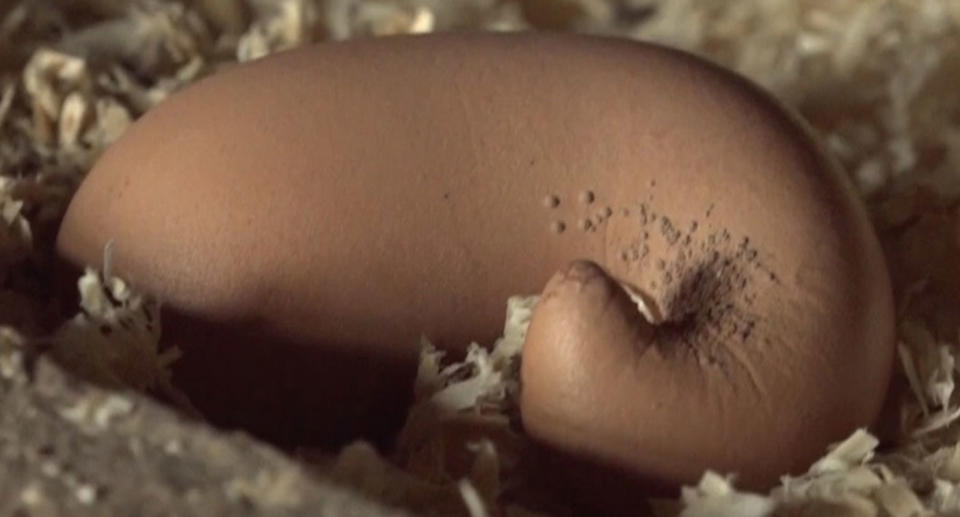The surprising reason for this unusual shell-shaped egg
A poultry farmer has made a bizarre find after discovering a twisted, swirled egg in her chicken coop.
Amateur poultry farmer Gea Berculo said she was startled when she discovered the strange egg in her coop in Gelderland, Holland.
“I put my hand in the nest without looking. It scared the life out of me, I did not know what I was feeling,” Ms Berculo said.
The chicken farmer, who has had the coop for around 15 years, said she “never saw such an egg before”.

She’s described it as “the shape of a small poo”.
Piet Kroon of the nearby Poultry Museum in Barneveld called the egg “very rare”.
“They are so special that you can say that they have not really been seen since the 1950s,” Mr Kroon said.
Egg expert Rick van Emous of the Wageningen Agricultural University said it’s possible the shape was caused by Newcastle Disease – a contagious illness, which affected poultry in the 1940s and 1950s.
The disease was named after Newcastle upon Tyne in England where it was first identified in 1927, and it is suspected of being the disease that wiped out domestic birds in Scotland 30 years previously.

Although deadly to poultry, in humans it causes only mild conjunctivitis and influenza-like symptoms.
“During an outbreak a lot of chickens would die,” Mr van Emous said.
“Nowadays chickens are vaccinated against the disease.”
He said that even though the disease is all but eradicated among professional chicken farmers, there might still be the odd sick chicken among hobby farmers.
Ms Berculo said she is unsure what to do with the egg although she said she will most likely donate it to the museum.


